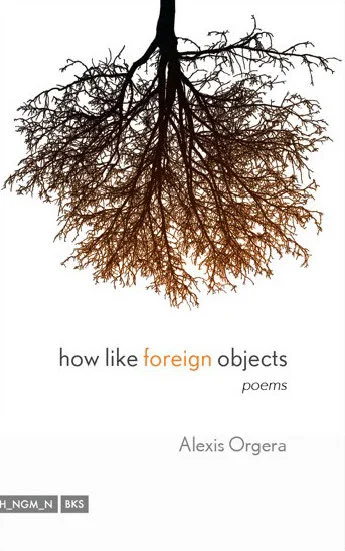How Like Foreign Objects
Alexis Orgera’s poems perpetually, vitally involve the reconceiving and reenacting of the means of intimacy even as they say again and again, I can no longer be myself. These are love poems between strangers who may for a moment celebrate and endure recognition; their voice is arch, angelic and at odds with itself, mercurial in its metaphoric riches, captivating in improvisational zeal, beautiful, and impossible not to love. —Dean Young
“Like foreign objects, Orgera’s poems cannot be easily pinned down: they retort, morph, disarm and shimmy, arcing through us like searchlights, as they illumine both fissures in language and in bodies.” —Simone Muench
How Like Foreign Objects is an impressive first book by a promising poet. One hopes that it is only the beginning of a rich and prolific career. Orgera fearlessly heeds Ezra Pound’s call to “make it new.” As some, including Dana Levin, have pointed out, Pound’s imperative has led too many young poets to embrace a façade of originality while failing to generate anything of substance. Orgera’s willingness to pursue the new, however, has enabled her to generate poetry that is profound, engaging, and sincere. —Ploughshares, [read full review here]
In Alexis Orgera’s stunning debut collection, the most commonplace items…become a point of entry to compelling philosophical questions: How do we derive meaning from experience? Why do we construct elaborate narratives in order to make sense of the chaos that surrounds us? Is there beauty to be found in disorder, pandemonium? —Drunken Boat
This is how we fall in love, Orgera and her reader, the crafting of her language putting notes in our hair, making noise beautiful, pairing us with her as she pairs everyday objects with unexpected movement. The foreign object is both our reading and her language, each a new substance in a complex game. —Pank Magazine
I lunge for these poems as they scuttle past, oh the beauty in movement, here then there, then zoom down the hill like a wicked cyclist, because whether I dig each poem or not, these poems are happening, something is changing, someone is loving, hurting, shuffling and this book reminds me: WE JUST NEED TO TRY. —Vouched Books
